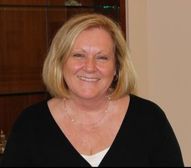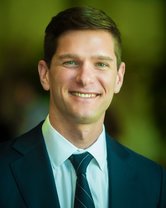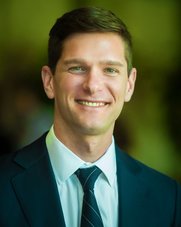 KAREN DOUSE, retired Director of Student & School Support KAREN DOUSE, retired Director of Student & School Support As I reflect back on my history with One Schoolhouse, I have such wonderful memories of my work with colleagues, schools, students, and parents. It has been one of the joys of my life to be an educator and to work as both a board member and an employee of this great organization through the early years and into its maturity. I've made such good friends and developed some strong relationships with many of you, and as I look forward to my retirement, I want to share with you some final thoughts. I hope you will humor me as I offer a few parting suggestions and observations. First of all, I believe with all my heart that schools owe it to their students to give them at least one opportunity to take an online class in high school. Almost every one of your students will encounter an online course in college, and what they can learn in terms of time management and self-advocacy will prepare them to be successful both in college and in a professional life in the future. What better way to prepare them for the future than to give them a safe place in which to learn and struggle and overcome and hone those important life skills? In all of my time with One Schoolhouse, I have never met a student who couldn’t succeed in an online course. There is no question that an online course is different in some ways from a face-to-face course and can be more of a challenge to some than to others – but your students can all do it. I simply don't believe it when students say they can't learn online. It really isn't a matter of how they learn online - it more a matter of developing the responsibility of managing their own learning. They may need encouragement and support as they develop this responsibility, but the learning itself is really no different. It isn’t that students can’t learn online – they may not want to or may prefer a face-to-face presence or may struggle some with the differences, but any student can succeed. I would also encourage you to be careful about overloading students with an online course as an “extra.” A good online course requires time and commitment and should be considered as an integral part of a student's educational program. So consider an online course as a part of your school’s curriculum. If you think it is as important as your students' other courses and treat it as such, so will your students. And finally, as you enroll students in online courses or encourage colleagues to participate in online professional development, I would urge you to be a partner with One Schoolhouse, not a client or consumer. The One Schoolhouse faculty and staff members are amazing educators who care as much about the success of your students as you do. They do not see themselves as vendors, but instead as partners in providing quality educational opportunities for your students, teachers, and administrators. Give them the chance to work with you, not for you. I was so fortunate to partner with colleagues at schools around the country, and together we helped many a student deal with challenges, find tremendous success, and gain confidence in themselves. I will forever value the friendships I've made with many of you and with my One Schoolhouse colleagues, and I wish all of you the very best. With great fondness - Karen
4 Comments
 Brad Rathgeber Brad Rathgeber I believe that every student learns differently. Students learn at different paces. Students learn in different modalities. Students learn from different people. Some students are introverts. Some are extroverts. Some learn through conversation. Some learn through reflection. Some learn through doing. Some learn through failure. Some learn from repetition. Most students learn in some combination of these ways. As educators, we know this. Those of us in independent schools are lucky that we often have the resources, small classes and support to honor this understanding. And yet, even with these advantages, we can still get incredibly frustrated knowing that no matter how much we differentiate in our classrooms, it doesn’t seem to be “enough.” No matter how much we try project-based approaches, blended approaches, lecture approaches, discussion approaches — or whatever — it seems we can never reach some of our students. Is that because we are trying approaches from the wrong direction? Should we be approaching learning from the perspective of the student rather than the teacher? Students know how they learn best — or can be given tools to help figure this out. And yet, the classroom — even a highly differentiated one — is designed by and led by the teacher. What if we changed this to a dynamic where the teacher designs the classroom, but the learning is driven by the students? That new classroom dynamic will fit with what we know about a changing world: one in which information is abundant, but using that information — applying, analyzing and criticizing it, and experimenting, arguing, convincing and collaborating with, for and about it — is not easy. The role of the teacher changes from purveyor of knowledge to coach of deep learning. This transition will not be easy for our students. Accustomed to a teacher-led classroom, some students (and their parents) will complain that we should “just tell them what they need to know.” Others will be confounded by choice or consumed by a desire to do everything, thinking they are cheating themselves if they do not go through every resource offered (even if they understand the concept well — “there must be something that I am missing out on”). A learner-driven dynamic is different for them. Transitioning to a learner-driven classroom will not be easy for teachers either. There is a worry about “losing control” over the learning process. There is also (an often-unspoken) worry about the value of oneself as an educator if one’s role is not that of content expert. A learner-driven dynamic is different for them, too. Nor will this transition be easy for our buildings and campus infrastructure. Many classrooms are designed for teacher-led work: organized towards the front of a room, with limited space for group work. The transition to a learner-driven school will take resources. Students and their parents will need to understand new approaches, just as the school will need to actively communicate to prospective families why this approach is effective. Faculty will need extensive professional development, and schools may need to rethink administrative structures to support faculty members in new dynamics (likely away from departmental models). Moreover, building designs and redesigns will need to accommodate and project for this new dynamic. For a school to become learner-driven, the business officer must be a leader in the effort — and must want to be a leader in the effort. As independent schools we promise (often in our mission statements) to develop a lifelong love of learning in students. We promise students and families that we know and value each child’s uniqueness. We have to ask ourselves the hard question of whether our current models for learning help us accomplish these promises. And, we have to be okay with the uncomfortable and messy answers that may come from asking this question. This column originally appeared in Net Assets magazine, a publication of the National Business Officers Association.  Brad Rathgeber Executive Director Brad Rathgeber Executive Director As educators, we have two seasons for rejuvenation. The summer offers us a chance for deep-reflection. And, the New Year offers a chance to re-commit to and reformulate intentions for the remainder of the school year. Last year, I wrote that my resolution was to honor the understanding that every student learns differently. I’m still working on that resolution. So, this year, I asked a few friends from the One Schoolhouse consortium to share resolutions that either they have for the coming year or that educators generally should consider for resolutions. I have two resolutions for the New Year for educators to consider. First, to incorporate more mindfulness strategies and physical activities for students and yourself in your classes (e.g., have Upper and Middle School students stand and take notes, create more learning centers in your classroom). Second, to find joy in your work, even in the hard moments. – Terrie Hale Scheckelhoff, Head of School, St. Catherine’s School (Richmond, VA) Amidst all the talk of big initiatives and bold thinking, let us not forget to value the most important thing in every school: the close and caring relationships that highly successful teachers create with students and their families. My resolution is to write a thank you note to a teacher every week to express gratitude for their work with students. Without great teachers, not one of even the most innovative or forward thinking education initiatives will ever succeed. – Rand Harrington, Head of School, Kent-Denver School (Englewood, CO) There are two New Year’s resolutions on my list.: 1) To help us establish a new context for thinking about student learning and the student experience. 2) To support a more thorough and practical understanding among teachers and administrators of emerging competencies in order to foster educational experiences that are learner-driven, process-oriented, relevant, and catalytic.” – Bob Bryan, Associate Head of School, Viewpoint School (Calabasas, CA) I have two resolutions to consider: Don't be afraid of failure. At Lincoln School, we embrace iterative learning and encourage our students to dig into trial and error. Society often pressures girls to be perfect, but there’s no such thing: the process is as important as the result because in life there is rarely just one answer. In the coming year, we are committed to keeping our Quaker values of peace, equity, and inclusion at top of mind as we educate girls and young women to be our society's future innovators, pioneers, and leaders. – Suzanne Fogarty, Head of School, Lincoln School (Providence, RI) Thank you to some of our consortium partners for their wise words. Here’s to 2017. What’s your resolution? |
Don't miss our weekly blog posts by joining our newsletter mailing list below:AuthorsBrad Rathgeber (he/him/his) Archives
July 2024
Categories |

 RSS Feed
RSS Feed